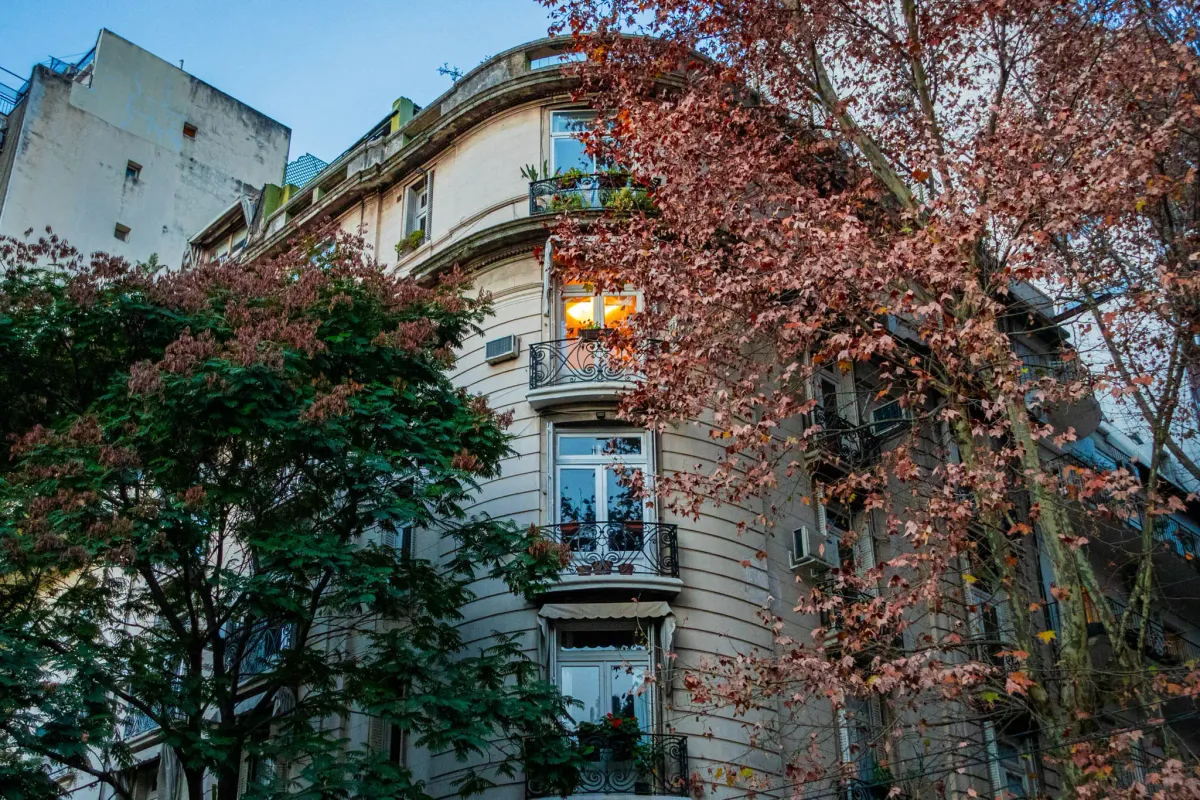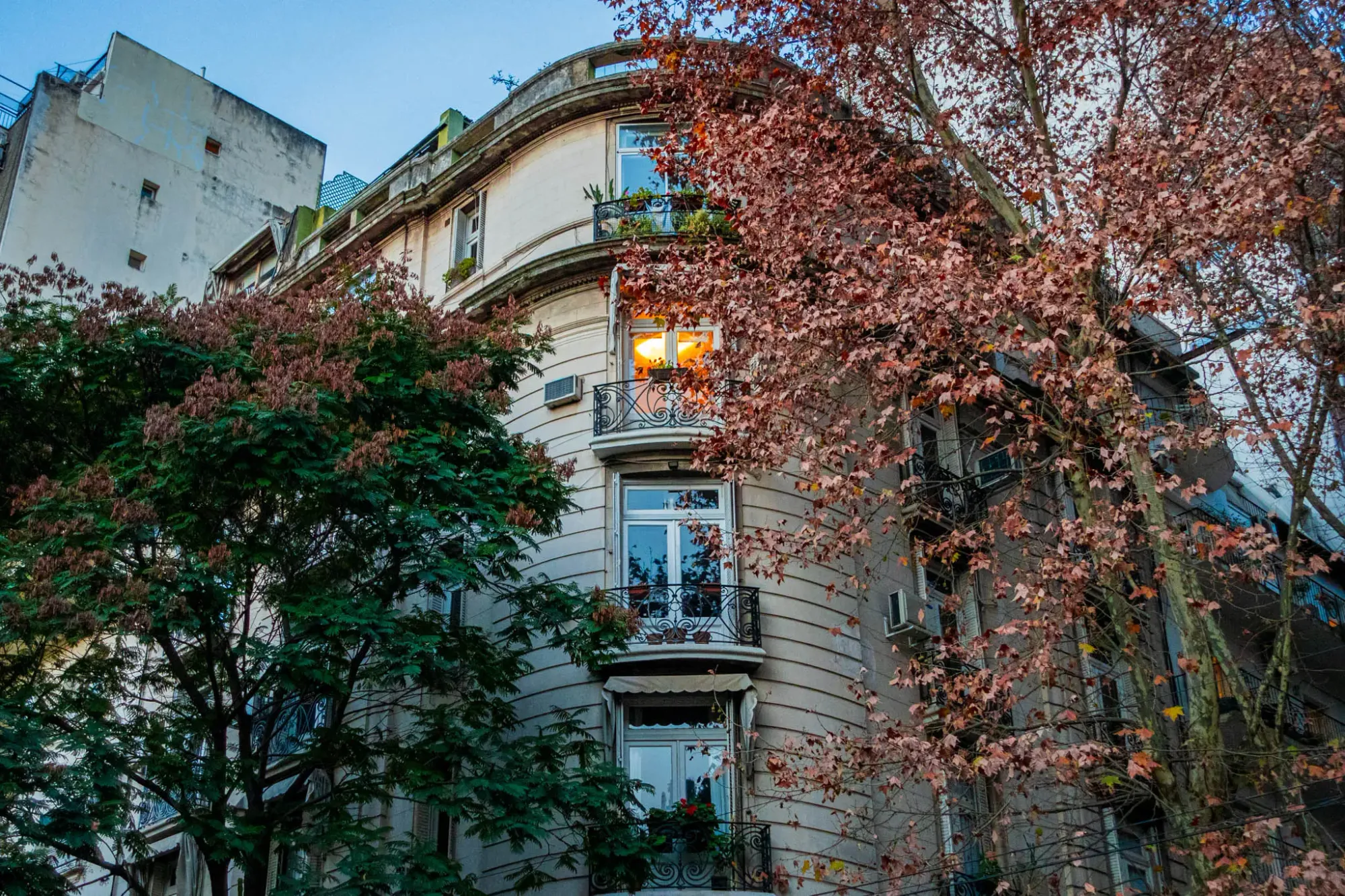TDG #023 - Your Guide to Buenos Aires
Sometimes a city just steals your heart.

Hey friends,
During my first trip to Buenos Aires, a friend I met there, Fernando, told me a story.
During the previous financial collapse in Argentina, which lasted from roughly 1998 - 2002, he and some friends had just saved up enough money to get a small sailboat. After a few months of delays, they finally managed to get the boat in the water. What would normally be a day for celebration turned into one of the worst nights for Argentina in recent memory. The economy had contracted more than 20%, unemployment hit 25%, and banks refused to give people their money. Protests blanketed the city, and the city was on fire. Things were decidedly not good.
And yet, as these events unfolded around them, he remembers sitting on the boat with his friends, watching the glowing city from the harbor, and pouring a glass of wine.
Why?
Well, what else can you do?
Argentines have had their fair share of political and economic crises. So when you talk to them about what's going on right now (which I'm overly eager to do) - the inflation, the upcoming election - they meet you with a pretty blasé attitude. It's just Argentina doing Argentina things.
So perhaps, like my friend on the boat, that explains why all the bars and restaurants are full, even as inflation passes 100% for the year. Life goes on, what else can you do?
It's hard to know where to start when I talk to people about Buenos Aires. It's a city that is so close to my heart I'm not so sure I can speak rationally about it anymore.
People often ask why I started in Buenos Aires - the simple fact was that I found a decently cheap flight, and it was far away (I mean solidly in the Southern Hemisphere). It's a pretty uninteresting answer, but those were really the only two criteria that informed any decisions I made at the onset of this year-long trip.
So last June, I set foot in Argentina bright-eyed and bushy-tailed, my mind ready to be molded by unknown forces. I had absolutely no expectations, which I think is just about the right amount of expectations for any trip. Ok, sure, I did expect wine and steak, but I was pretty confident I could find those.
I spent a month in Buenos Aires. And it was a formative month. I made friends, I had a fruit & vegetable guy, and I had "my" restaurants and bars - a small life was developed in Buenos Aires. And it felt right. It felt like a little sign from the universe that this actually was a good decision and the path I chose wasn't entirely crazy.
Fast forward about a year, and it was time to head back to Argentina and Buenos Aires one more time. I'll admit I was nervous. I was nervous that my version of the city, the one I had visited 10 months prior, was just conjured up by nostalgia. I was also a little more weathered and grizzled from a year on the road, so I couldn't help but wonder if my initial judgment of Buenos Aires was clouded by hopeful naivety and excitement.
It wasn't.
A second visit and another month in Buenos Aires (and Argentina) was enough proof that it's a world-class city, second to none.
If you do decide to venture to Buenos Aires at some point, which I highly recommend you do, I put together a guide that captures all of my hard-fought wisdom. You know, the steak, wine, and chorizo fueled hard-fought wisdom. I truly put it all on the line for you all...

I think a big value proposition of these city guides is the maps - an easily digestible way to compliment, not dictate, your own wandering and discovery. They have recommendations on food, drink, sights & sounds, and some field notes - think of them as something you can have in your back pocket when you’re feeling a bit peckish or thirsty.
In putting together this guide, I went back through some old snippets from Postcards (available to paid members only) I wrote over the last year:
It’s Sunday. It’s late. And I’m hungry. Fortunately, this city is one that seemingly doesn’t sleep. People are out until at least 2 am every day. A schedule that’s amenable to the type of lifestyle that I’m most comfortable in. The night-dwelling, nocturnal, degenerate type. I write this from a parrilla in the Palermo neighborhood of Buenos Aires. Sipping on a glass of red wine, presumably a Malbec, patiently awaiting my mollejas and asado.
...
It’s a city where you can eat one of the best steaks you’ve ever had in your life while sitting roadside on a plastic table, listening to the screeching of a bus breaking and smelling its exhaust. And right after eating that roadside steak, you can witness one of the most heartbreaking, beautiful, and intense displays of human emotion – Tango. An art form that was born from years of suffering rose to prominence, was relegated to the sidelines, and is now back again.
Some other reads
Unpacking the history of American diners.
I've really enjoyed following Craig Mod's pop-up newsletter about jazz cafes in Japan.
Paris’ push to phase out cars continues.
The oldest book in the world is apparently about taxing beer and olive oil. It’s from the 3rd Century B.C., about 400 years older than the earliest known books to date. If I haven’t yet convinced you of alcohol’s historical significance, there you go.
Here's a very perplexing take against travel from Agnes Callard of the New Yorker. I kind of understand where the author was trying to go with it, but I'm not quite sure it landed for me. The piece starts by cherry-picking quotes from folks like Socrates and Emmerson. They even bring up Portuguese author Fernando Pessoa and his Book of Disquiet, which I actually referenced a few weeks ago. I have read large swaths of that book and can’t say he’s giving “greatest hater of travel” vibes. In any case, I do think the fact that someone travels can come off as very much “virtue signaling,” especially on social media. And I do think we need to constantly find ways to be more active participants rather than passive consumers of life wherever we are, at home or abroad.
Welp, that's all for this week.
- SR

